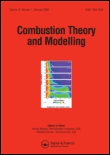
COMBUSTION THEORY AND MODELLING
Scope & Guideline
Advancing the Frontiers of Combustion Science
Introduction
Aims and Scopes
- Theoretical Modelling of Combustion Phenomena:
The journal emphasizes the development and application of theoretical models to understand combustion mechanisms, including chemical kinetics, flame dynamics, and turbulence interactions. - Computational Fluid Dynamics (CFD) in Combustion:
A significant portion of the research involves advanced computational techniques such as Large Eddy Simulation (LES) and Conditional Source-term Estimation (CSE) to simulate complex combustion scenarios. - Experimental Investigations in Combustion Science:
The journal publishes experimental studies that validate theoretical models and computational predictions, providing insights into real-world combustion behavior. - Fuel Characterization and Alternative Fuels Research:
Research on various fuels, including biofuels, synthetic fuels, and waste-derived fuels, is a consistent focus, addressing the need for sustainable energy solutions. - Soot and Emissions Modelling:
The journal addresses the formation and reduction of soot and emissions in combustion systems, contributing to cleaner combustion technologies. - Flame Interaction and Stability Analysis:
Studies on flame stability, interactions with solid boundaries, and the effects of environmental conditions are crucial for understanding combustion in different settings.
Trending and Emerging
- Integration of Machine Learning in Combustion Modelling:
There is a growing trend toward using machine learning techniques for reducing reaction mechanisms and predicting combustion behavior, indicating a shift towards data-driven approaches in combustion science. - Advanced Turbulence Modelling Techniques:
Emerging studies are increasingly focusing on sophisticated turbulence models such as LES and hybrid approaches that combine different modelling strategies for improved accuracy in turbulent combustion simulations. - Research on Alternative and Renewable Fuels:
A noticeable increase in studies addressing the combustion of alternative fuels, including hydrogen and biofuels, reflects the urgency of transitioning to sustainable energy sources. - Flame Dynamics and Control Mechanisms:
Research on the dynamics of flame interactions, stability, and control methods is gaining traction, highlighting the importance of managing combustion for efficiency and safety. - Thermal Radiation Effects in Combustion:
Emerging interest in the role of thermal radiation in combustion processes signifies a deeper exploration of its impact on flame behavior and emissions.
Declining or Waning
- Traditional Chemical Kinetics:
Research focusing solely on traditional chemical kinetics without integration into larger combustion models has decreased, as newer methodologies are developed that account for complex interactions. - Low-Temperature Combustion Studies:
The frequency of papers dedicated to low-temperature combustion mechanisms has waned, potentially overshadowed by the growing interest in high-efficiency combustion strategies. - Simplistic Soot Modelling Approaches:
Older models that do not incorporate advanced soot formation mechanisms are becoming less common, as the field moves towards more sophisticated and accurate soot prediction methods. - One-Dimensional Flame Studies:
Research centered around one-dimensional flame models is appearing less frequently, as the focus shifts towards more complex multi-dimensional simulations that better represent real combustion scenarios.
Similar Journals

ATOMIZATION AND SPRAYS
Transforming Knowledge into Practical SolutionsATOMIZATION AND SPRAYS, published by BEGELL HOUSE INC, stands at the forefront of research in the dynamic field of chemical engineering, particularly focusing on the intricate processes of atomization and the mechanics of droplet dynamics. Established in 1996, this prestigious journal aims to disseminate innovative findings and methodologies that drive advancements in applications ranging from spray technologies in industrial processes to environmental technology and energy conversion systems. With a current Impact Factor that reflects its significance within the community—ranked in the Q3 quartile—it serves as a comprehensive resource for researchers, professionals, and students eager to deepen their understanding of fluid mechanics and spray applications. Though not an open-access publication, it provides critical insights and a platform for scholarly communication and exchange in its converged years, fostering collaboration and innovation within the domain.

JOURNAL OF ENGINEERING PHYSICS AND THERMOPHYSICS
Catalyzing Knowledge in Engineering Physics and ThermophysicsJOURNAL OF ENGINEERING PHYSICS AND THERMOPHYSICS, published by Springer, is a vital resource for researchers and professionals in the fields of engineering physics and thermophysics. With an ISSN of 1062-0125 and an E-ISSN of 1573-871X, this esteemed journal has been disseminating high-quality research since its inception, covering critical advancements in both condensed matter physics and various engineering disciplines. Despite its classification within the third quartile in both Scopus categories for 2023, the journal remains a significant conduit for innovative studies that push the boundaries of knowledge in thermal and physical engineering, with converged years spanning from 1992 to 1997 and 2004 to 2024. The journal does not offer open access, which means subscribers and institutions have exclusive access to its rich content. As the field continues to evolve, JOURNAL OF ENGINEERING PHYSICS AND THERMOPHYSICS plays an essential role in fostering scholarly discussions and supporting the academic community in tackling contemporary engineering challenges.
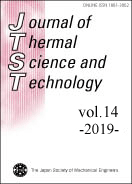
Journal of Thermal Science and Technology
Exploring the frontiers of thermal science and engineering.Journal of Thermal Science and Technology, published by the Japan Society of Mechanical Engineers, is a distinguished open-access journal that has been serving the academic community since its inception in 2009. With a commitment to disseminating cutting-edge research in the realms of thermal science and its engineering applications, the journal has established itself as an essential resource for researchers, professionals, and students alike. Holding important quartile rankings in 2023, including Q3 in Atomic and Molecular Physics, Engineering (miscellaneous), and Materials Science (miscellaneous), this journal showcases high-impact studies that contribute to the advancement of technology and materials engineering. Open access since 2021, it aims to enhance the visibility and accessibility of critical research findings, thus fostering innovation and collaboration within the global scientific community. The journal’s dedicated editorial board actively seeks to publish novel insights that not only engage with existing challenges but also inspire future developments in thermal science and technology.

DOKLADY PHYSICS
Fostering Knowledge in the Realm of Physical Sciences.DOKLADY PHYSICS is a prominent academic journal dedicated to advancing knowledge in the fields of computational mechanics, mechanics of materials, and general physics and astronomy. Published by MAIK NAUKA/INTERPERIODICA/SPRINGER, this journal has established itself as a crucial resource for researchers and professionals keen on exploring the intricacies of physical phenomena and engineering applications. With its ISSN 1028-3358 and E-ISSN 1562-6903, DOKLADY PHYSICS has been contributing to scientific discourse since its inception in 1996 and continues to provide a platform for innovative research up to 2023. Despite its current Q3 ranking in several key categories, the journal maintains an inclusive approach, striving to influence both academic and practical aspects of its fields. While the journal may not be open access, it remains a vital publication for those interested in high-quality research, as reflected in its Scopus ranking positions across various engineering and physics categories.

Fuels
Exploring the Future of Sustainable Energy SolutionsFuels is a premier open-access journal published by MDPI, focusing on the multifaceted field of fuel science, technology, and applications. Since its inception in 2020, this journal (E-ISSN: 2673-3994) has rapidly become a vital resource for researchers, professionals, and students engaged in the exploration of sustainable fuel alternatives, combustion technologies, and energy conversion processes. Located in Basel, Switzerland, Fuels aims to disseminate high-quality research that not only advances academic understanding but also addresses real-world energy challenges. By embracing an open-access format, it ensures that significant findings are readily available to the global scientific community, helping to foster collaboration and innovation in the transition to cleaner energy solutions. With an emphasis on interdisciplinary research and practical applications, Fuels is poised to be a leading journal that shapes the future of energy technologies.
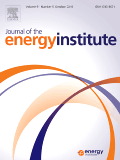
JOURNAL OF THE ENERGY INSTITUTE
Pioneering Research in Energy Engineering and TechnologyJOURNAL OF THE ENERGY INSTITUTE, published by Elsevier Science Ltd, is a leading interdisciplinary journal dedicated to the advancing fields of energy engineering and technology. With its ISSN 1743-9671 and E-ISSN 1746-0220, this journal has established a prominent reputation, evident from its impressive impact factor and strong rankings across multiple categories, achieving Q1 status in fields such as Condensed Matter Physics, Control and Systems Engineering, and Energy Engineering and Power Technology. As a pivotal resource for researchers, professionals, and students alike, the journal covers a comprehensive spectrum of topics in energy, including recent innovations in renewable energy technologies, sustainable practices, and advancements in fuel technologies. Researchers are encouraged to explore its open-access options for broad dissemination of knowledge, contributing to a more sustainable and energy-efficient future. With a converged history from 2004 to 2024, the JOURNAL OF THE ENERGY INSTITUTE remains a critical platform for cutting-edge research and development in the energy sector, promoting impactful solutions to global energy challenges.
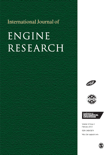
International Journal of Engine Research
Shaping the Future of Engine Technology and DesignWelcome to the International Journal of Engine Research, an esteemed publication dedicated to advancing the fields of Aerospace Engineering, Automotive Engineering, Mechanical Engineering, and Ocean Engineering. Published by SAGE Publications Ltd and based in the United Kingdom, this journal has earned a prestigious reputation, consistently ranking in the Q1 quartile in several engineering categories as of 2023. The journal's impact is evident through its high Scopus rankings, positioning it within the top 25% of global research in Aerospace and Automotive engineering, and within the top 20% for Mechanical engineering. With a commitment to publishing rigorous, peer-reviewed research from 2000 to 2024, the International Journal of Engine Research plays a vital role in fostering innovation and collaboration within the engineering community. Although this journal does not offer open access, it remains a critical resource for researchers, industry professionals, and students striving to deepen their understanding in these dynamic fields.
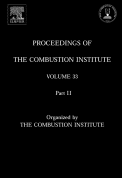
PROCEEDINGS OF THE COMBUSTION INSTITUTE
Catalyzing Insights in Combustion EngineeringPROCEEDINGS OF THE COMBUSTION INSTITUTE, published by Elsevier Science Inc, is a premier platform for dissemination of advanced research in the fields of combustion science, engineering, and related technologies. With an ISSN of 1540-7489 and an E-ISSN of 1873-2704, this journal holds a prestigious position within the academic community, as evidenced by its top-tier Q1 rankings in Chemical Engineering, Mechanical Engineering, and Physical and Theoretical Chemistry for 2023. The journal is recognized for its rigorous peer-review process and aims to publish high-quality, impactful research that drives innovation and knowledge in combustion phenomena. Researchers and professionals can engage with cutting-edge findings that address critical challenges and explore novel solutions in this vital area of study. Although it does not offer open access, its subscription model ensures wide accessibility to institutions and experts seeking profound insights into combustion dynamics.
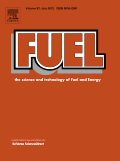
Fuel
Pioneering Insights in Chemical and Power TechnologiesFuel is a premier international journal published by Elsevier Science Ltd, showcasing critical advancements and insights in the fields of chemical engineering, energy engineering, power technology, and organic chemistry. With a significant history dating back to 1922 and continuous publication from 1970 to 2025, Fuel holds an impressive position in the academic community, reflected in its top-tier rankings—Q1 in multiple categories including Fuel Technology and Chemical Engineering for the year 2023. This journal is dedicated to exploring innovative research and application of fuel technologies, driving forward the dialogue on sustainable energy solutions. Researchers and professionals alike will find Fuel to be an essential resource, providing access to high-impact articles that contribute to advancements in methodologies and applications, while navigating the complexities of global energy challenges.
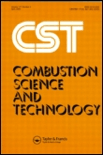
COMBUSTION SCIENCE AND TECHNOLOGY
Transforming Insights into Combustion PhenomenaCOMBUSTION SCIENCE AND TECHNOLOGY, published by Taylor & Francis Inc, is a pivotal journal in the fields of Chemical Engineering and Chemistry, with a robust history spanning from 1969 to 2024. With an established impact factor and a strong reputation reflected in its Q2 ranking in both Chemical Engineering and Chemistry, this journal serves as an essential resource for researchers and professionals dedicated to the intricacies of combustion processes and energy technologies. The journal also holds commendable rankings in Energy Engineering, Fuel Technology, and Physics and Astronomy, showcasing its interdisciplinary relevance. While currently not an open-access publication, it offers a wealth of knowledge through its meticulously peer-reviewed articles, which are crucial for advancing understanding and innovation in combustion science. With a commitment to promoting rigorous research and fostering scholarly communication, COMBUSTION SCIENCE AND TECHNOLOGY is indispensable for anyone seeking cutting-edge insights into combustion phenomena and their applications in various engineering fields.